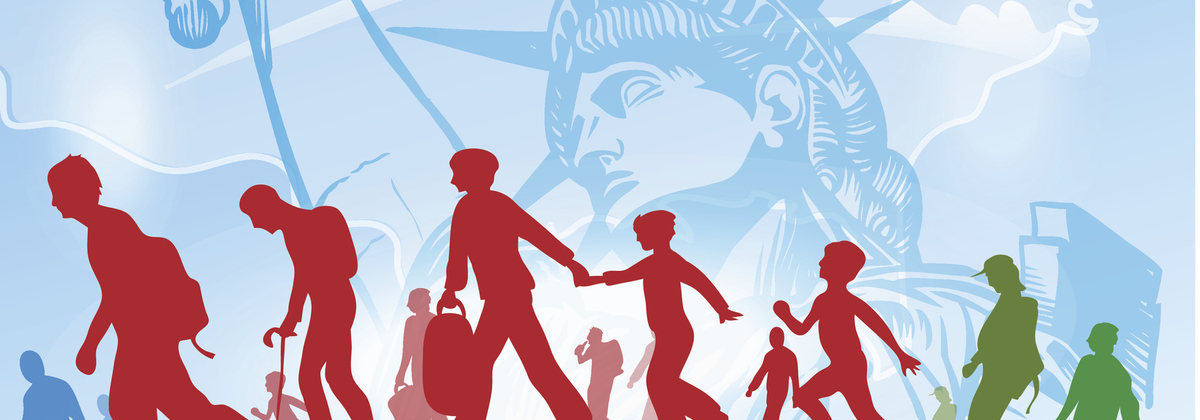

OVER THE LAST two centuries the individuals seeking escape from the equilibrium of poverty–rejecting accommodation–have had one remarkably certain recourse. For most of those who have attempted it, it has served well. For their children even better. It has only rarely required any active effort on the part of governments. More often it has needed only their acquiescence and, most often, in recent times, only their nonvigilance. It has placed no strain on the capacity for public action of the poor countries. Where fully exploited, it has not only involved the escape from poverty for those directly involved, but it has facilitated escape within the equilibrium of poverty for those motivated to a different course. It is a remedy for those rejecting accommodation that is now being employed on a scale greater than ever before. As a policy for poverty, it evokes relatively little discussion. Most courses on economic development are given, many books on the subject are written, without any mention of it whatever.
The recourse is for those who reject accommodation to move from the poor country to one of the advanced industrial nations. As a remedy for poverty, it focuses with precision on those for whom such a policy is alone workable and for whom it must be designed–those who, rejecting accommodation, are motivated to improve their economic position. No effort or money is wasted on those not yet so motivated. One marvels, on occasion, at our capacity, especially where social convenience seems to be involved, to ignore the obvious. It was never so worthy of wonder as here.
These are the opening paragraphs of a chapter suggesting migration as a way of dealing with poverty. The book is written by an economist.
I’m working on a talk on immigration to give at the Osher Lifelong Learning Institute in Monterey next Tuesday and, in my research, I came across this passage.
Question: Who wrote this?
HT2 Cyril Morong.

READER COMMENTS
Stéphane Couvreur
Mar 5 2020 at 12:24am
John Kenneth Galbraith “The nature of Mass Poverty” (1979), says Google books.
Joseph Hertzlinger
Mar 5 2020 at 1:38am
I thought it sounded familiar. “The Nature of Mass Poverty” is also notable for defending British colonial policies.
David Henderson
Mar 5 2020 at 8:23am
Yup. His whole chapter on migration is excellent.
nobody.really
Mar 5 2020 at 9:21am
Wow–that’s shocking. I never expected to read such a thing.
Not the Galbraith quote. Rather, Henderson’s embrace of Galbraith as a fellow economist.
KevinDC
Mar 5 2020 at 10:39am
You must not be all that familiar with David Henderson then. I’d have to say he’s probably near the top of the list of people I know in terms of being generous and gracious to his interlocutors, and he’s very scrupulous about giving them their due and acknowledging when they make good points or have a strong argument, even when he ultimately disagrees.
Ironically, the closest instance I can remember (off the top of my head anyway) to someone suggesting that Galbraith didn’t deserve to be considered a real economist was Paul Krugman, in his book Peddling Prosperity. Not trusting my memory, I just grabbed it off my bookshelf and found this passage:
Krugman goes on to describe Galbraith’s subsequent economics work as “remarkably ill-informed” and notes approvingly that “Galbraith’s influence never reached into the actual determination of policy. John F. Kennedy brought him into the administration, but literally put him as far from economic policy as possible by making him Ambassador to India.”
David Henderson
Mar 7 2020 at 8:56am
Wow! I just saw this. Thanks so much, Kevin.
You might find interesting this article, written a few months after Galbraith’s death, “John Kenneth Galbraith: A Criticism–and an Appreciation,” The Freeman, December 2006.
Thaomas
Mar 5 2020 at 9:55am
I think it has long been pretty much conventional wisdom among economists that migration (up to some un-probed limits, perhaps) is a win win for residents of both the originating and receiving countries.
Internal migration also contributes to poverty reduction and promotes growth (and could contribute more with fewer restrictions on residential and commercial development in many urban areas), but clearly is not enough. That’s why we have public education, subsidized medicare care, and direct income transfers like Social Security, SNAP, unemployment insurance, etc.
Philo
Mar 5 2020 at 10:58am
And are they enough?
Fred_in_PA
Mar 5 2020 at 12:56pm
You seem to be rejecting the ideas of Max Weber, Dierdre McCloskey, Geert Hofstede, and everyone working in the area of a culture of poverty. Or assuming that culture is very evanescent / quickly assimilated into the receiving society.
Yet if the flow is that cultures generate societies generate economies; Then importing a culture that has generated malignant hierarchy and rampant murder & corruption would likely import those same societal practices here. And, in their train, the collapse of our bourgeois society and its prosperity.
Based on your recent piece on Guatemala and your time at UFM (Tuesday, March 3) I would expect you to reject the characterization of Paragraph 2, Sentence 2, above. Yet, I just recently read Oscar Martinez’s A History of Violence, and the contrasting imagery — presumably of the same society — could not be more stark.
How to explain two honorable people looking at the same society and one seeing Heaven (with some admitted flaws) and the other seeing Hell (with scraps of redemptive flotsam)?
My guess is derivative from the Wikipedia article on “Social Issues in Guatemala.” (And a caveat: Most of the information cited there seems to come from a UN Development Program case study dated 2008 and citing statistics from 2006. So it’s out of date.)
But, at least at that time, the UNDP was reporting high inequality in that society (Gini coefficient of 0.55; for a more recent comparison, the World Bank’s estimates place Guatemala at 48.7, the U.S. at 41.5,, and Norway at 26.8). It appears to my amateur’s eye that this is aggravated by geographic separation & social exclusion of the country’s ethnic groupings. The population is about 40% indigenous / Native American / Mayan, 40% mestizo / mixed-blood, and 20% white / European ancestry.
Extreme poverty (defined as an income of less than $1 / day per person) cursed 6% of Guatemala’s Urban, Non-Indigenous population in the UNDP study. (My guess is that it was likely lower among just the Europeans.) Among Guatemala’s Rural, Indigenous population, it stood at 38% (again, UNDP 2006).
I suspect the Guatemala you experienced was the European, urban, educated one. And the one Martinez is describing is AmerIndian, rural, and poverty-stricken.
It was never the successful of European society who decided to sign into steerage and brave the passage to America in the hope of a better life. It was always the disadvantaged and the poverty stricken. And the caravans of Central America are no different.
But given the hostility of the European gentry toward the bourgeois, a disproportionate share of the disadvantaged migrating from Europe had that shopkeeper’s mentality. (Recall Hitler’s derisive reference to the English as a nation of shopkeepers.) That likely isn’t true of the Central American AmerIndian caravans.
Or to borrow from the SEC, “Past performance is no guarantee of future results.”
David Henderson
Mar 5 2020 at 2:28pm
I think you meant to reply to Bryan Caplan, my co-blogger. He’s the one who recently went to UFM.
Fred_in_PA
Mar 5 2020 at 6:15pm
You are correct.
So that is at least one mistake I’m making.
My apologies.
Miguel Madeira
Mar 9 2020 at 8:17am
You seem to be assuming that assuming that culture is very evanescent / quickly assimilated by the receiving society.
Miguel Madeira
Mar 9 2020 at 8:18am
Correction: You seem to be assuming that culture is very evanescent / quickly assimilated by the receiving society.
Comments are closed.